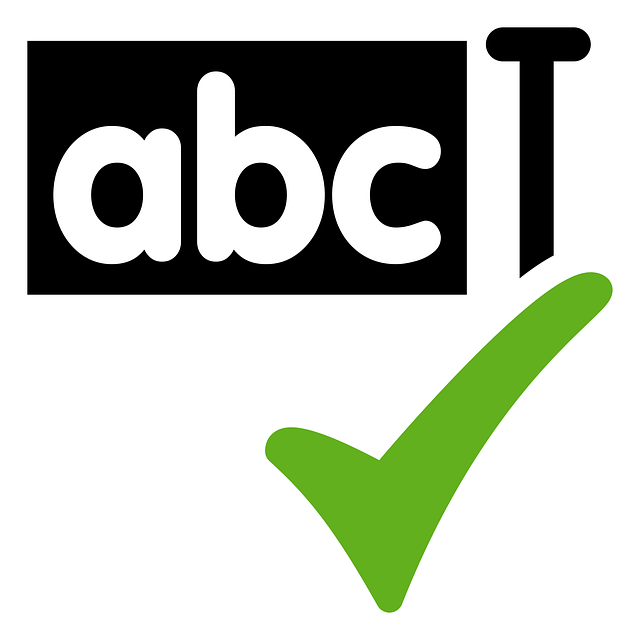Unqualified real estate agents pose significant risks in complex transactions. Real estate license checks are vital to prevent fraud, protect buyers & sellers, and maintain industry integrity. These checks verify credentials, ensuring qualified professionals facilitate secure, ethical deals, fostering trust in a competitive market.
In today’s competitive real estate market, ensuring qualified transactions is paramount. Unqualified buyers pose a growing concern, leading to potential risks for both sellers and agents. This article delves into the critical role of real estate license checks as a robust safeguard. We explore how background verifications prevent fraud, enhance transparency, and ensure fair practices within the industry. By implementing stringent license checks, the real estate sector can mitigate unqualified buyers, securing secure and reliable deals.
- Unqualified Buyers: A Growing Concern in Real Estate
- The Role of License Checks in Safeguarding Properties
- Preventing Fraud: Background Checks for Agents and Brokers
- Enhancing Transparency: Verifying Seller and Buyer Credentials
- Ensuring Fair Practices: Real Estate Industry's Guardrails
Unqualified Buyers: A Growing Concern in Real Estate

Unqualified buyers pose a significant challenge in the dynamic world of real estate. As transactions become increasingly complex, ensuring the integrity and competence of every involved party has become more critical. Without thorough background checks, such as real estate license verifications, unscrupulous individuals may attempt to exploit loopholes, leading to unfair practices like fraudulent sales or improper investment schemes. This not only undermines the trust within the industry but also leaves unsuspecting buyers vulnerable to financial loss and legal complications.
The Role of License Checks in Safeguarding Properties

Real estate license checks are a fundamental aspect of safeguarding properties and ensuring fair transactions. These checks verify that all parties involved in a real estate deal—from agents to brokers—are duly licensed, bonded, and insured. By performing such verifications, potential risks can be mitigated, including fraud, unauthorized practice of law, or financial instability on the part of the buyer or seller.
License checks play a crucial role in maintaining integrity within the industry. They ensure that individuals handling significant financial transactions have the necessary qualifications, knowledge, and ethical standards required to act as intermediaries. This process helps protect both the property owners and the buyers by fostering trust and transparency, ultimately contributing to a more secure and stable real estate market.
Preventing Fraud: Background Checks for Agents and Brokers

In the realm of real estate transactions, preventing fraud is paramount to safeguarding both buyers and sellers. One effective measure to achieve this is through comprehensive background checks on agents and brokers. Real estate license checks play a crucial role in ensuring that those facilitating these significant financial deals are qualified and trustworthy. By verifying their credentials, including educational backgrounds, work histories, and any disciplinary actions or legal issues, potential fraud can be identified and mitigated.
These checks serve as a robust defense against unscrupulous individuals who might attempt to pose as legitimate real estate professionals. They help maintain the integrity of the industry by weeding out unqualified or dishonest agents, thus fostering trust among clients engaging in what is often one of life’s largest financial undertakings—purchasing or selling property.
Enhancing Transparency: Verifying Seller and Buyer Credentials

In the dynamic realm of real estate, ensuring transparency is paramount to safeguard both buyers and sellers. One of the most effective ways to achieve this is through rigorous verification of credentials. Conducting thorough real estate license checks plays a pivotal role in this process. By cross-referencing seller and buyer identities with authorized databases, agents can confirm the validity of licenses, certifications, and any history of professional misconduct. This not only instills confidence in the transaction but also acts as a robust barrier against unqualified individuals attempting to facilitate property deals.
Enhancing transparency through such checks fosters a sense of trust within the community. Buyers can rest assured that they are dealing with legitimate professionals, minimizing the risk of fraudulent activities. Similarly, sellers are protected from potential losses and negative experiences. This verification process is a game-changer in navigating the complex landscape of real estate transactions, ensuring that every step remains ethical and secure.
Ensuring Fair Practices: Real Estate Industry's Guardrails

In the competitive and regulated real estate industry, ensuring fair practices is paramount to maintaining integrity and safeguarding transactions. One of the critical guardrails in this sector is conducting thorough background checks, with a special focus on verifying real estate licensees. These checks are essential to prevent unqualified individuals from facilitating property deals, which could lead to severe legal and financial repercussions for buyers, sellers, and agents alike.
Real estate license checks play a pivotal role in upholding ethical standards. By verifying the credentials and background of real estate professionals, potential risks associated with fraud, misconduct, or incompetence are minimized. Such practices ensure that all parties involved can trust the integrity of their representatives, fostering transparency and security throughout the entire transaction process.






